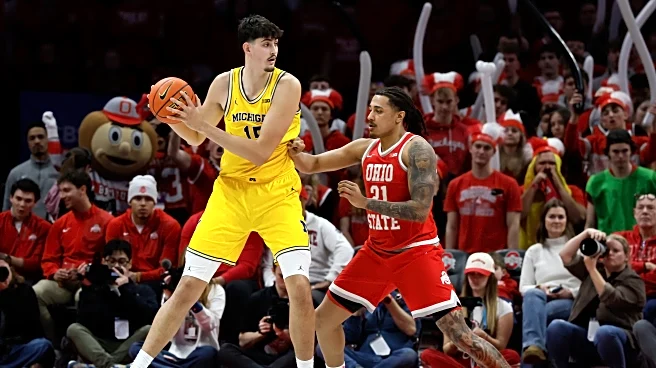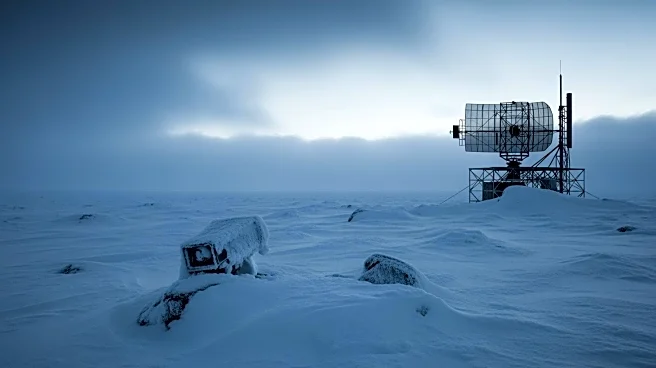What's Happening?
France's foreign ministry has expressed concern over Mali's decision to replace Western security partnerships with Russian-backed forces, which has not resulted in improved stability. Since Mali's military
ruler Assimi Goïta expelled French and U.S. troops in 2021, the country has faced worsening security conditions. A fuel blockade by al-Qaeda-linked militants has nearly crippled Bamako, raising fears of a potential jihadist takeover. France, which suspended counterterrorism cooperation with Mali in September, continues to monitor the situation closely. The presence of Russian forces in Mali has been contested, with France asserting that it does not ensure the security of Malian citizens.
Why It's Important?
The shift in Mali's security alliances from Western to Russian-backed forces has significant implications for regional stability and international relations. France's withdrawal and the subsequent deterioration in security highlight the challenges of foreign military interventions in Africa. The situation in Mali could influence other countries in the Sahel region facing similar insurgencies, potentially affecting international efforts to combat terrorism. The growing influence of Russia in Africa, as seen in Mali, may alter geopolitical dynamics, impacting Western interests and strategies in the region.
What's Next?
France's continued monitoring of Mali's security situation suggests potential diplomatic or strategic responses to the evolving crisis. The international community may need to reassess its approach to supporting Mali and other Sahel countries in combating terrorism. The effectiveness of Russian-backed forces in Mali remains uncertain, and their presence could lead to further instability if not managed properly. The situation may prompt discussions on the role of foreign powers in African security and the need for sustainable, locally-driven solutions.
Beyond the Headlines
The situation in Mali raises ethical questions about the role of foreign military forces in sovereign nations and the long-term impact of such interventions. The influence of Russian forces in Mali could lead to shifts in cultural and political dynamics, affecting local governance and societal structures. The ongoing conflict and instability may exacerbate humanitarian issues, including displacement and poverty, requiring international attention and support.










